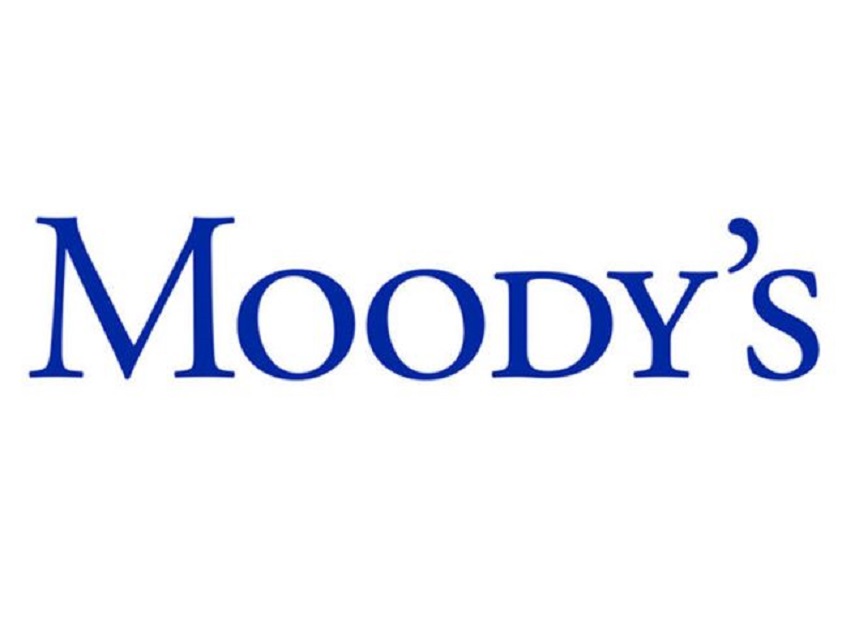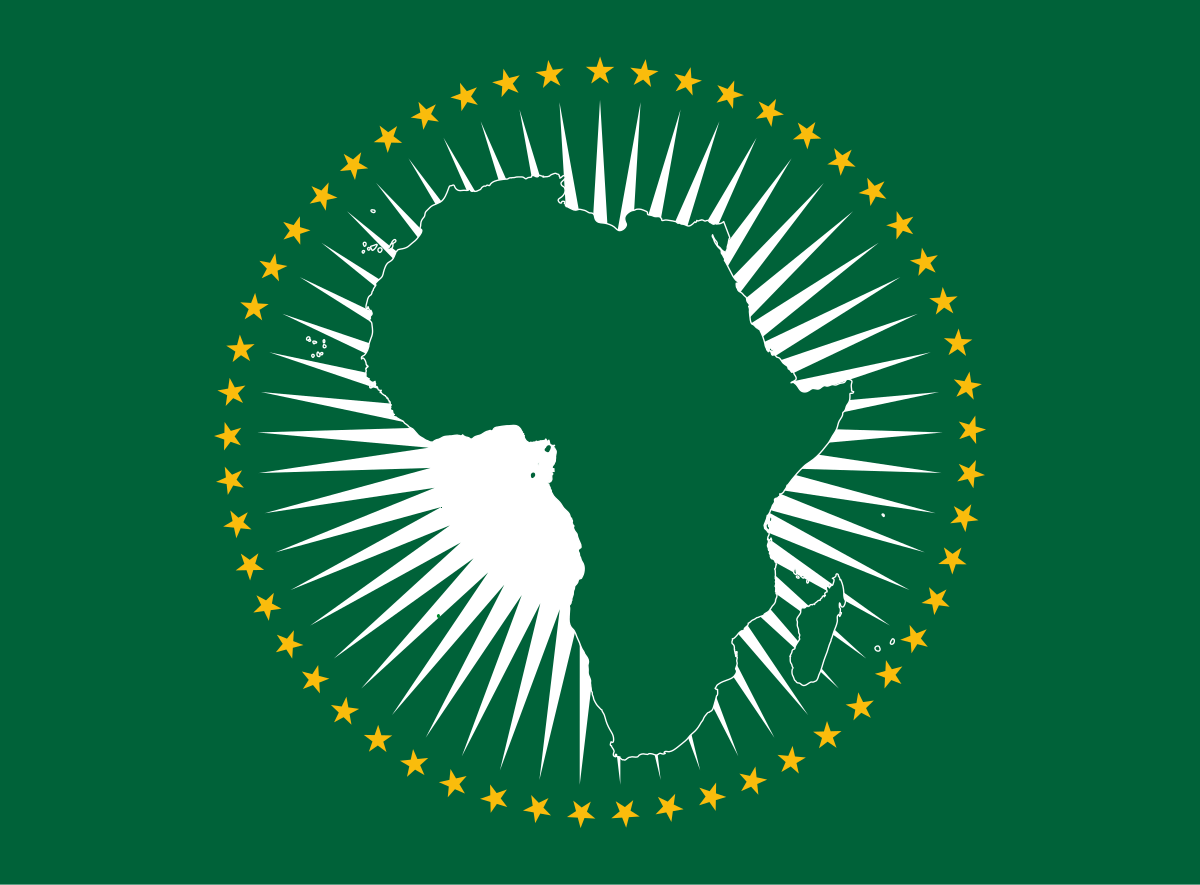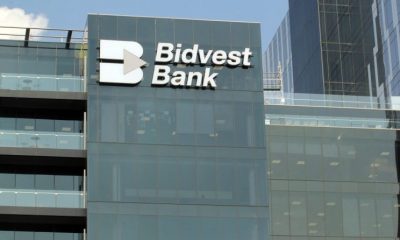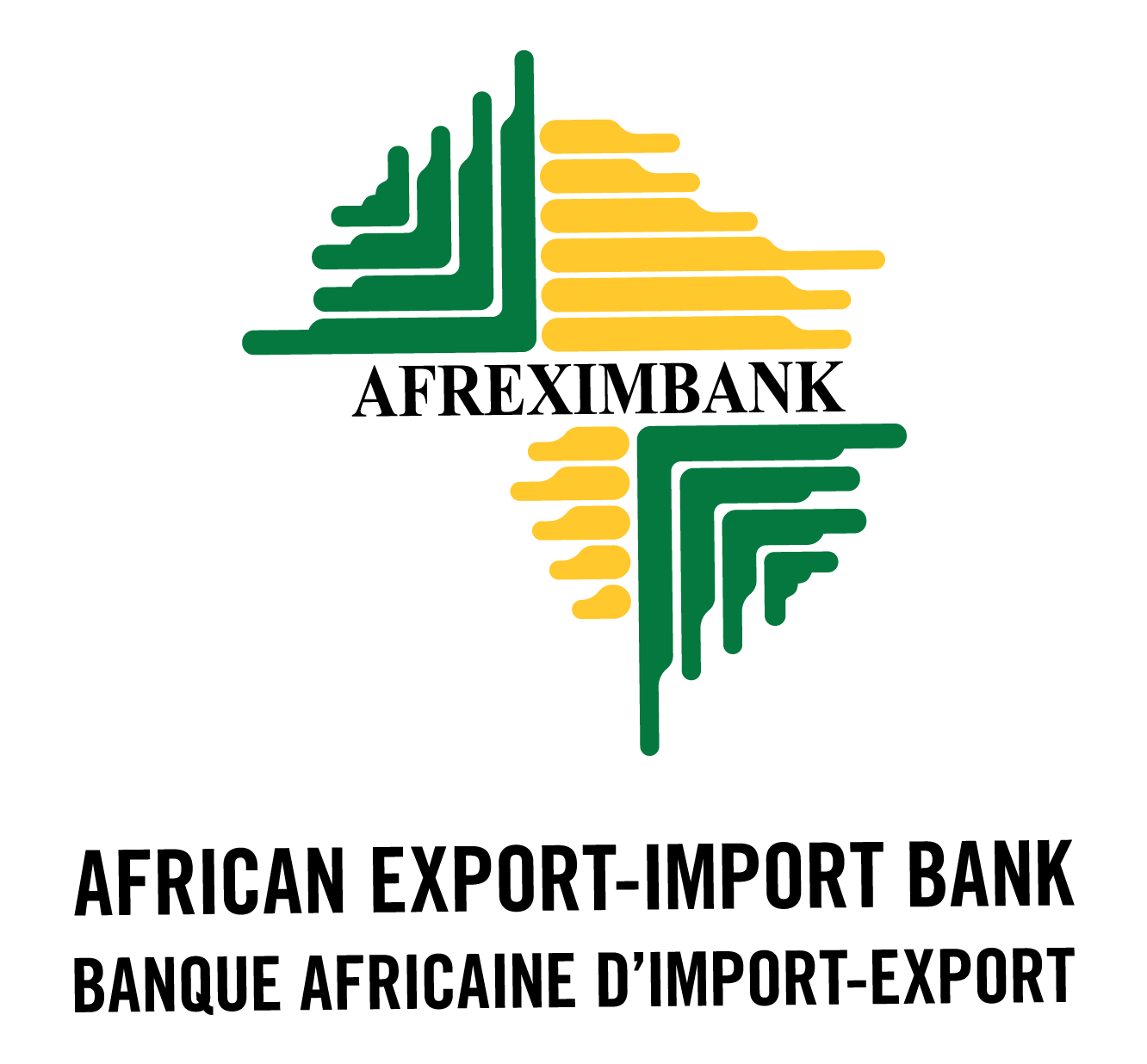Banking
Diamond Bank’s Solvency Crisis Will Further Worsen—Moody’s Warns

**Downgrades Bank’s Ratings
By Dipo Olowookere
The baseline credit assessment (BCA) and adjusted BCA of Diamond Bank Plc have been downgraded from caa3 from caa1 by Moody’s Investors Service.
In a statement obtained by Business Post, the foremost global rating agency explained that the action was as a result the Nigerian lender’s weakened solvency, governance tensions and foreign currency liquidity challenges.
“In Moody’s view, the bank will face a further deterioration of its solvency that will likely undermine investor confidence and make foreign currency funding increasingly costly and difficult to access, or the bank will receive external capital support from either existing or new shareholders, or from the government, boosting its solvency and addressing its foreign currency vulnerability,” the statement said.
On the downgrading of the ratings, the statement noted that, “The primary driver for the two-notch downgrade of Diamond Bank’s BCA to caa3 is Moody’s view that the lack of progress in resolving NPLs adds pressure on its already weak solvency profile,” the statement said.
Also, the rating firm downgraded Diamond Bank’s long-term local currency and foreign currency deposit ratings to Caa1 from B3.
The rating agency placed the deposit and other senior ratings and assessments on review with direction uncertain.
Diamond Bank’s Not Prime (NP) short-term local and foreign currency deposits and counterparty ratings and NP(cr) short-term counterparty risk assessments have been affirmed, Moody’s said.
“Moody’s action follows the departure of Diamond Bank’s chairman of the board and three other non-executive board members, and the subsequent announcement of the bank’s third quarter financial results which showed a lack of progress in reducing problematic exposures, in contrast with the improvements that the rating agency had expected.
“The downgrade reflects Diamond Bank’s (1) weak solvency that is characterised by low provisions set aside for its high level of non-performing loans (NPLs) that outsize its tangible common equity (TCE), (2) corporate governance tensions that will likely divert management’s focus from resolving NPLs and could potentially undermine investor confidence, and (3) vulnerable foreign currency repayment obligations in 2019,” the statement said.
It further said the placement of the ratings on review reflects potential for diverging outcomes for Diamond Bank.
Moody’s said its previous assignment of a positive outlook on Diamond Bank’s deposit ratings in June 2018 had been based on expectations of substantial NPL reduction in the following 12 months; however, Moody’s said it now expects NPLs and provisioning needs to remain high.
Diamond Bank’s NPLs ratio stood at about 40 percent of gross loans as of September 2018 from 42 percent at year-end 2017, and only about 20 percent of the NPL stock is covered by provisions. Moody’s estimates that the provisioning requirements currently outsize the bank’s TCE.
“A second driver for the downgrade is the weakened corporate governance of the bank, following the recent unexpected departure of the bank’s chairman and three members of the board of directors. This development reveals tensions that the rating agency expects will delay the resolution of the bank’s large portfolio of NPLs and could potentially undermine investor confidence in the ability of the bank’s management to turn around Diamond Bank’s financial performance.”
A third related factor for the downgrade is Diamond Bank’s vulnerable foreign currency funding profile. The rating agency views the risk that the weak solvency and corporate governance tension may erode customer and depositor confidence, further impairing the bank’s financial performance and negatively affecting Diamond Bank’s funding profile.
“The bank will face significant refinancing needs in the first half of 2019, including a $200 million Eurobond maturing in May 2019.
“Diamond Bank’s liquid foreign currency assets at year-end 2017 amounts to about 25 percent of the debt and borrowings that are maturing in 2019, and the bank is currently looking at various market options to meet its foreign currency funding needs,” the rating firm said.
Moody’s said counterbalancing the aforementioned negative factors, it believes there is a high probability of government support for Diamond Bank, in case of need, reflecting the bank’s designation as a Domestic Systemically Important Bank in Nigeria and its large retail client base of about 10 million clients.
“Diamond Bank’s Caa1 long term deposit and issuer ratings benefit from a two notch support uplift from the bank’s BCA of caa3,” it said.
It said the review on Diamond Bank’s Caa1 deposit ratings will focus on the lender’s ability to address its solvency and foreign currency challenges.
The rating agency said it will assess the likelihood of some of the lenders converting their convertible debt to equity, or the bank raising new capital externally through other means, including any possible takeover.
In addition, Moody’s said it will assess any financing structures and plans that Diamond Bank will put in place in order to boost its foreign currency liquidity, balanced against any deterioration of its foreign currency resources, including any foreign currency deposit outflows.
“During the review period, Moody’s will also monitor steps taken by the bank’s shareholders to strengthen corporate governance, including the potential for Diamond Bank to appoint non-executive and independent directors that will meet the Central Bank of Nigeria’s (CBN) approval,” it ended.
Banking
All Set for Second HerFidelity Apprenticeship Programme

By Modupe Gbadeyanka
Registration for the second HerFidelity Apprenticeship Programme (HAP 2.0) organised by Fidelity Bank Plc has commenced.
The Divisional Head of Product Development at Fidelity Bank, Mr Osita Ede, informed newsmen that the initiative was designed to empower women with sustainable entrepreneurship skills.
The lender created the flagship women-empowerment initiative to equip women with practical, income‑generating skills and structured pathways to entrepreneurship.
“HerFidelity Apprenticeship Programme 2.0 reflects our commitment to continuous improvement. Having evaluated feedback from the first edition, we have returned with stronger partnerships and deeper mentorship programmes to ensure that women acquire not just skills, but sustainable economic opportunities,” he said.
“At the heart of the programme is guided, real‑world learning. Participants will undergo intensive apprenticeship training under reputable institutions and industry experts across select fields such as hair styling, shoe making, auto mechatronics, and interior decoration,” Mr Ede added.
He noted that HerFidelity Apprenticeship Programme 2.0 goes beyond skills acquisition by offering participants a wide range of business advisory services. These include business and financial literacy training, mentorship support throughout the apprenticeship journey, access to Fidelity Bank’s women‑focused and SME financial solutions, as well as guidance on business formalisation and growth strategies.
Further emphasising the bank’s vision, Mr Ede said, “By integrating structured mentorship with entrepreneurial development, Fidelity Bank is positioning women not just as trainees, but as future employers, innovators, and economic contributors within their communities. This aligns with our mandate to help individuals grow, businesses thrive, and economies prosper.”
Banking
The Alternative Bank Opens New Branch in Ondo

By Modupe Gbadeyanka
A new branch of The Alternative Bank (AltBank) has been opened in Ondo State as part of the expansion drive of the financial institution.
A statement from the company disclosed that the new branch would support export-oriented agribusinesses through Letters of Credit and commodity-backed trade finance, ensuring that local producers can scale beyond state borders.
For SMEs, the bank is introducing robust payment rails, asset financing for equipment and inventory, and supply chain-backed facilities that strengthen working capital without trapping businesses in interest-based debt cycles.
The Governor of Ondo State, Mr Lucky Aiyedatiwa, represented by his Chief of
Staff, Mr Olusegun Omojuwa, at the commissioning of the branch, underscored the importance of financial institutions in economic development.
“The pivotal role of financial institutions to economic growth and development of any economy cannot be overemphasised. It provides access to capital, supporting small and medium-scale enterprises and encouraging savings.
“Therefore, I have no doubt in my mind that the presence of The Alternative Bank in Ondo State will deepen financial services, create employment opportunities and stimulate economic activities across various sectors,” he said.
In her remarks, the Executive Director for Commercial and Institutional Banking (Lagos and South West) at The Alternative Bank, Mrs Korede Demola-Adeniyi, commended the state government’s leadership and outlined the lender’s long-term vision for Ondo State.
“As Ondo State steps into its next fifty years, and into the future anchored on the sustainable development championed during the recent anniversary celebrations, The Alternative Bank is here to be the financial engine for that vision. We didn’t come to Akure to hang banners. We came to fund work, farms, shops, and factories.”
With Ondo State’s economy anchored largely on agriculture, particularly cocoa production, poultry farming, and other cash crops, alongside a growing SME and trade ecosystem, AltBank is deploying sector-specific financing solutions tailored to these strengths.
For cocoa aggregators, processors and poultry operators, the bank will provide production financing, facility expansion support, machinery lease structures, and structured trade facilities under its joint venture and cost-plus financing models, with transaction cycles of up to 180 days for commodity trades and longer-term structured asset financing for equipment and infrastructure.
The organisation is a notable national non-interest bank with a physical network now surpassing 170 locations, deploying capital to solve real-world challenges through initiatives such as the Mata Zalla project, which saw to the training of hundreds of women as electric tricycle drivers and mechanics.
Banking
Recapitalisation: 20 Nigerian Banks Now Fully Compliant—Cardoso

By Adedapo Adesanya
The Governor of the Central Bank of Nigeria (CBN), Mr Yemi Cardoso, announced on Tuesday that the country’s banking sector is making strong progress in the recapitalisation drive, with 20 banks now fully compliant.
Mr Cardoso disclosed this during a press conference at the first Monetary Policy Committee (MPC) meeting of 2026, where he also highlighted positive developments in the nation’s foreign reserves.
On March 28, 2024, the apex bank announced an increase in the minimum capital requirements for commercial banks with international licences to N500 billion.
National and regional financial institutions’ capital bases were pegged at N200 billion and N50 billion, respectively.
Also, CBN raised the merchant bank minimum capital requirement to N50 billion for national licence holders.
The banking regulator said the new capital base for national and regional non-interest banks is N20 billion and N10 billion, respectively.
To meet the minimum capital requirements, CBN advised banks to consider the injection of “fresh equity capital through private placements, rights issue and/or offer for subscription”.
Following the development, several banks announced plans to raise funds through share and bond issuances.
In January, Zenith Bank said it had raised N350.46 billion through rights issue and public offer to meet the CBN minimum capital requirement.
Guaranty Trust Holding Company Plc (GTCO), on July 4, said it had successfully priced its fully marketed offering on the London Stock Exchange (LSE).
In September, the CBN governor said 14 banks fully met their recapitalisation requirements — up from eight banks in July.
With one month to the central bank’s March 31, 2026, recapitalisation deadline, 13 Nigerian lenders are yet to cross the finish line.
Additionally, the governor noted that 33 banks have raised funds as part of the ongoing recapitalisation exercise, signalling robust capital mobilisation across the sector.
He stated that gross foreign reserves have climbed to a 13-year high of $50.4 billion as of mid-February 2026.
-

 Feature/OPED6 years ago
Feature/OPED6 years agoDavos was Different this year
-
Travel/Tourism10 years ago
Lagos Seals Western Lodge Hotel In Ikorodu
-

 Showbiz3 years ago
Showbiz3 years agoEstranged Lover Releases Videos of Empress Njamah Bathing
-

 Banking8 years ago
Banking8 years agoSort Codes of GTBank Branches in Nigeria
-

 Economy3 years ago
Economy3 years agoSubsidy Removal: CNG at N130 Per Litre Cheaper Than Petrol—IPMAN
-

 Banking3 years ago
Banking3 years agoSort Codes of UBA Branches in Nigeria
-

 Banking3 years ago
Banking3 years agoFirst Bank Announces Planned Downtime
-

 Sports3 years ago
Sports3 years agoHighest Paid Nigerian Footballer – How Much Do Nigerian Footballers Earn


















